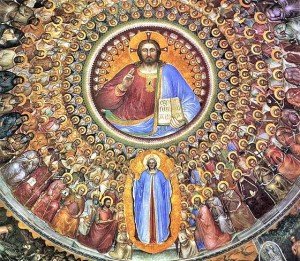Continuing thoughts from the last issue wherein I introduced the fancy and esoteric idea of nondual consciousness, I would add that Jesus’ nondual vision of the Kingdom of Heaven was not a paradox. It only seems like a paradox to our limited logical way of thinking. Jesus’ nondual vision was simply the seeing of what, in fact, is actually true. Jesus, however, found it impossible to describe his nondual vision in simple declarative sentences without sounding paradoxical. That is because the human mind, and the declarative, spacetime language that our human minds have created, is itself dualistic. Our minds, and therefore human language, are inherently structured on the basis of countless spacetime, logical polar opposites. In simple terms, because we think in terms of time and space, we cannot see a universe therein everything – past, present and future – are all one. There is NO TIME in God. We humans, however, find it almost impossible – or perhaps impossible – to think about things without reference to time and space.
Jesus did not say, “The Kingdom of Heaven is this” because this automatically excludes its opposite that. Nor did he say, “The Kingdom of Heaven is that” because that automatically excludes its opposite this. He did not say “The Kingdom is here” because here excludes its opposite there. Likewise, he did not say “The Kingdom is there because there excludes its logical opposite here. So Jesus ended up saying that the Kingdom was not here and not there. He did end up saying that the Kingdom is within.
Still another way Jesus got around the problem of declarative or logical language was to speak about his inner nondual vision of the Kingdom in parables, analogies, metaphors and stories. When we listen to His stories we find that He really hints that we will find the Kingdom within when we find God within.

